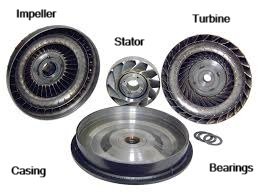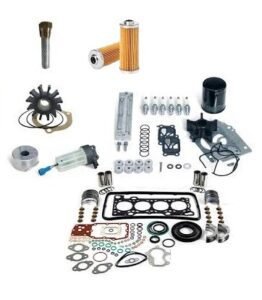Marine engines are essential to maritime vessels, powering exciting journeys and ensuring safe travel. Proper care and maintenance are critical to prolonging their lifespan and maintaining optimal performance.
Mitsubishi, a prominent player in the marine sector, is renowned for manufacturing durable and efficient power engines and systems. Nevertheless, issues can eventually occur even with the most reliable engines.
This blog post explores Mitsubishi marine engines’ five most common issues, detailing their causes and providing practical solutions to ensure your boat runs smoothly.
Let’s get started!
Common Marine Engine Issues with Mitsubishi and Their Solutions
Mitsubishi marine engines are known for their reliability and performance, making them popular among boat owners. However, like any machine, it can have problems.
Here are the top five common problems and their potential solutions that you need to look:
Engine Overheating:
Overheating is one of the most common concerns that can significantly damage your engine. Various factors can contribute to this problem, like faulty thermostat, an obstructed cooling system, or insufficient coolant levels. Any of these issues can interfere with the engine’s temperature regulation, causing it to overheat.
Solution: You must regularly inspect the thermostat and replace it when necessary. So ensure the cooling system is consistently clean and free from blockages or obstructions.
Starting Problems:
Experiencing trouble when trying to start your vehicle can be incredibly frustrating. Several factors could contribute to this issue, such as a battery that lacks sufficient charge, malfunctioning starter motor, fuel delivery system complications, or ignition mechanism problems.
Solution: To resolve this issue, you must carefully examine the battery to assess its condition, and recharge it if it falls below the required level. Perform an in-depth inspection of the fuel system, including checking for blocked filters, water contamination in the fuel, or other potential problems.
Sputtering and Losing Energy:
Your boat seems to be losing propulsion. Fuel exhaustion is the most common cause of boat malfunctions. Your issue most likely stems from the plugs or filter. This could be the reason the motor on your boat won’t start.
Solution: You can clean and empty the accumulated water and dirt if you have no filter element. Inboard/outboard (I/O) vehicle owners should fully vent the engine box before restarting after cleaning the filter element. If not, a clogged filter may appear insignificant.
Excessive Smoke:
An excessive amount of smoke emanating from an engine could be a sign of potential issues it may face. These problems could include inefficient fuel combustion, deteriorated or damaged engine parts, or complications with the turbocharger system.
Solution: Verify the air-fuel mixture in the engine. Confirm that the injectors and carburetors are working correctly. Examine the engine for any worn piston rings or valve seals. If the vehicle has a turbocharger, diagnose and fix any issues.
Engine Vibration:
Not every issue with your yacht or boat stems from the engine; occasionally, floating debris can cause harm. If your boat vibrates during acceleration, it may be caused by damaged propellers or tangled fishing lines. When you return to shore, you may need to repair the broken bushing if the issue continues even after clearing all apparent debris.
Solution: To resolve this problem, you must balance the engine and propeller components. Examine the propeller for any damage or signs of wear. Inspect the engine mounts for indications of wear or damage.
These are some of the common signs relating to Mitsubishi marine engines and the solutions they provide.
Conclusion
Mitsubishi marine engines are highly regarded for powering heavy-duty vessels in continuous, unrestricted operations. The brand has become a reliable name in the offshore industry, particularly within the Asian marine sector.
Alfa Marine Spare Parts offers high-quality marine engine components for those in need of these engines. Get in touch with us now!
Frequently Asked Questions
How often should I change the oil in my marine engine?
The decision to change the oil depends on the engine model and usage. But we recommend changing it every 100 hours of operation or annually.
What is the reason behind the overheating of my marine engine?
Factors like a faulty thermostat, clogged cooling system, or insufficient coolant levels can cause overheating.
What is causing the power loss in my Mitsubishi marine engine?
Loss of power can be due to fuel supply issues, ignition problems, or mechanical issues such as worn components or timing problems.
How do I prevent corrosion on my vessel’s engine?
Regularly cleaning and drying the engine, using corrosion inhibitors, and storing the boat in a covered area can help prevent corrosion.







